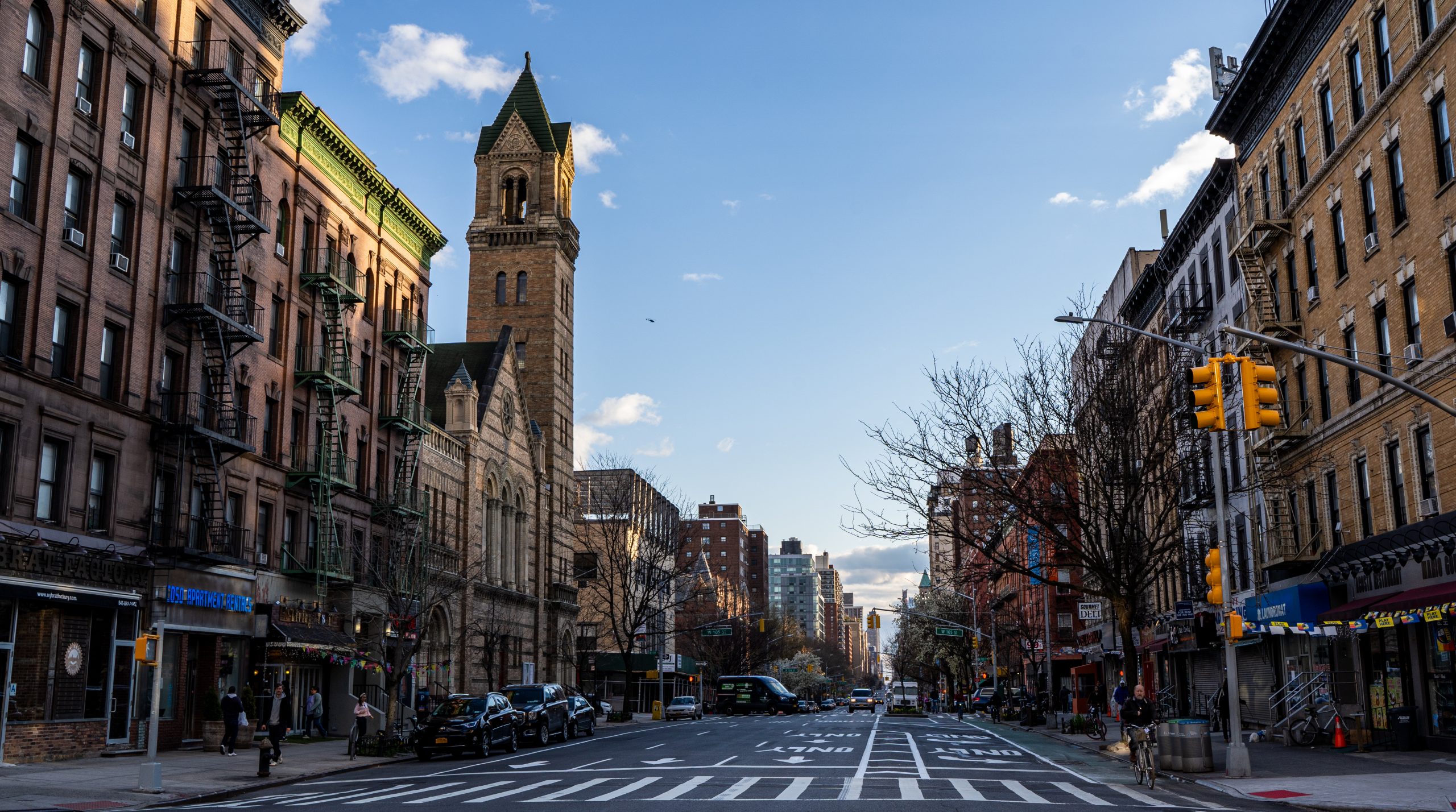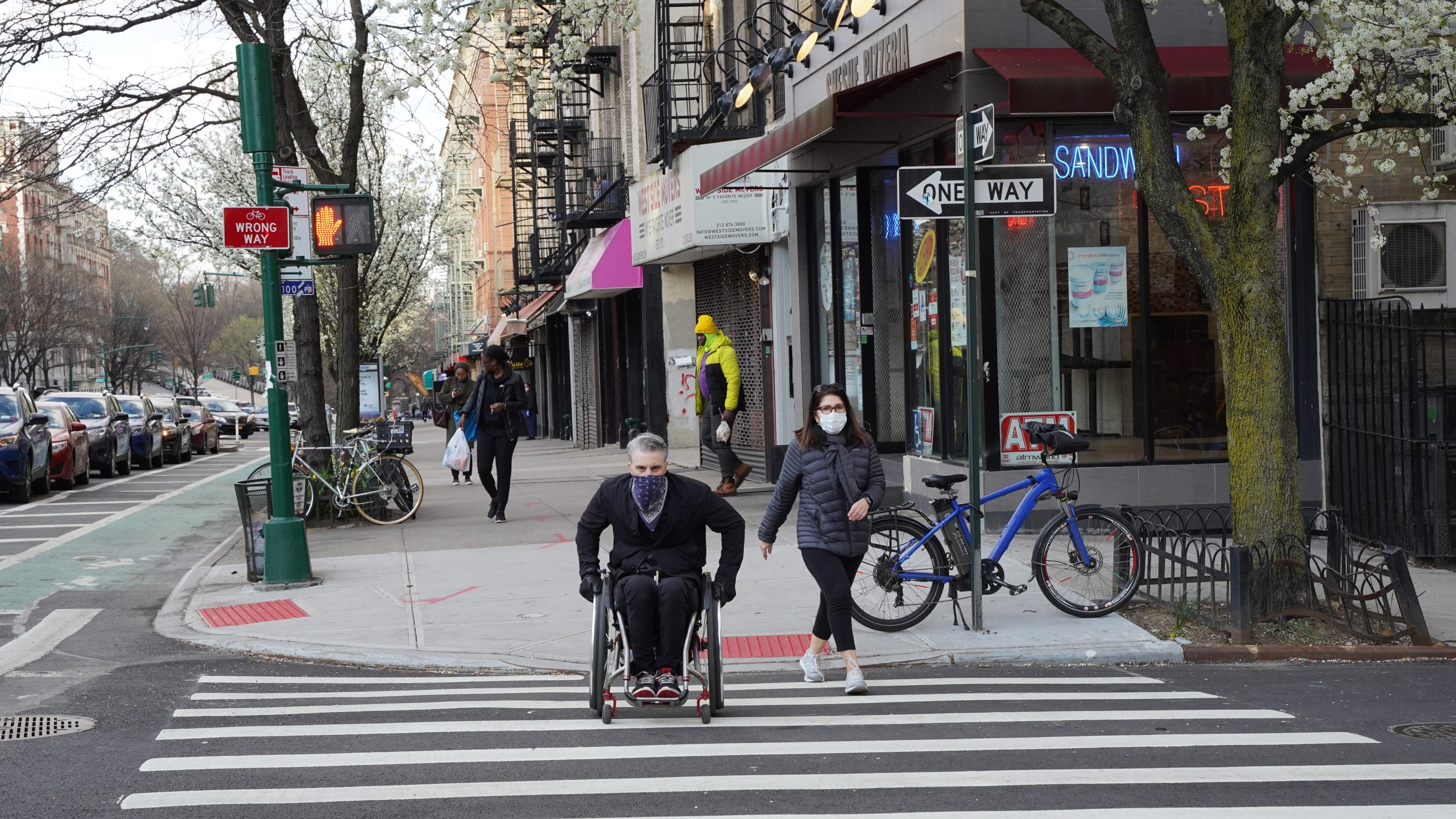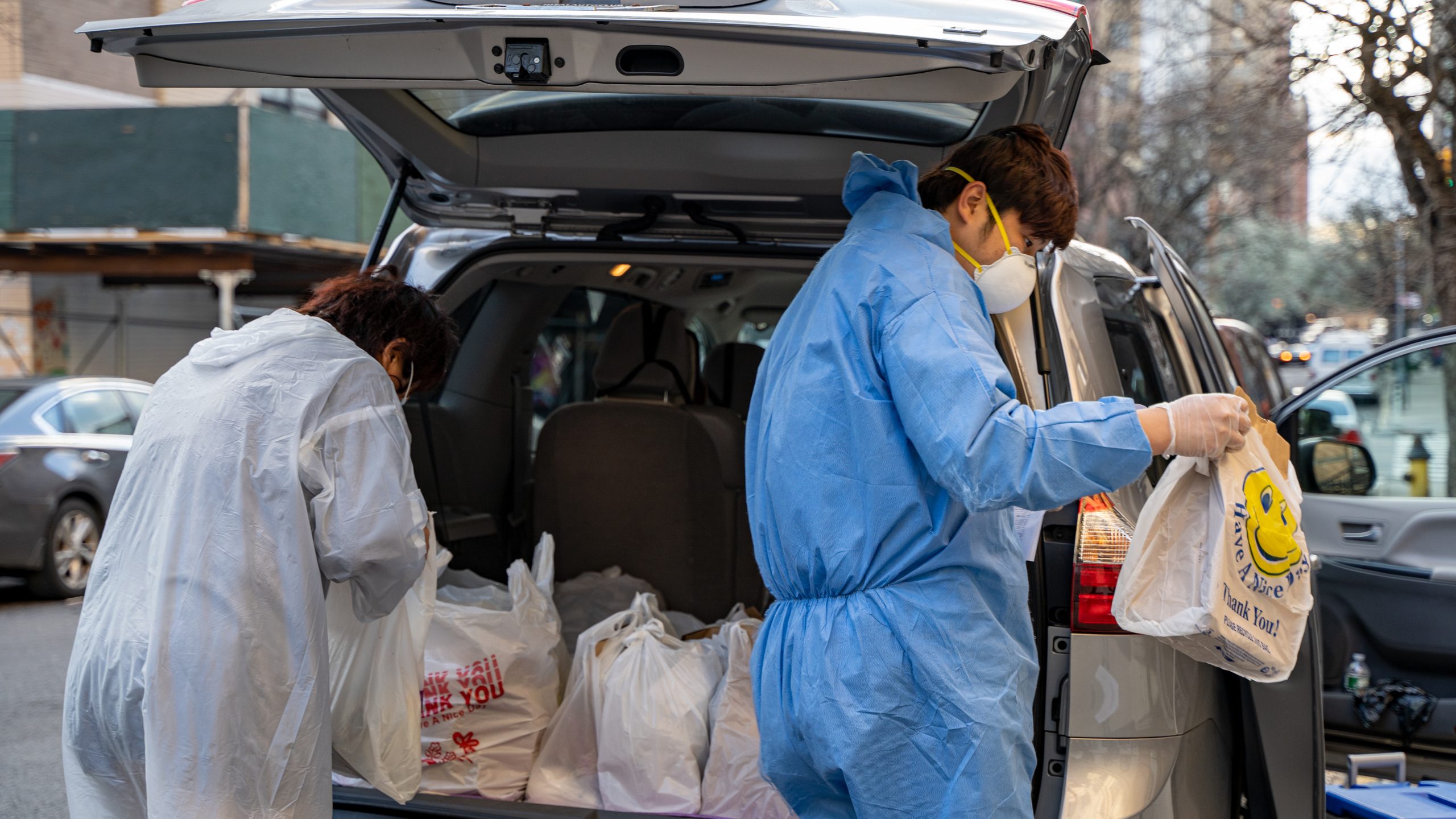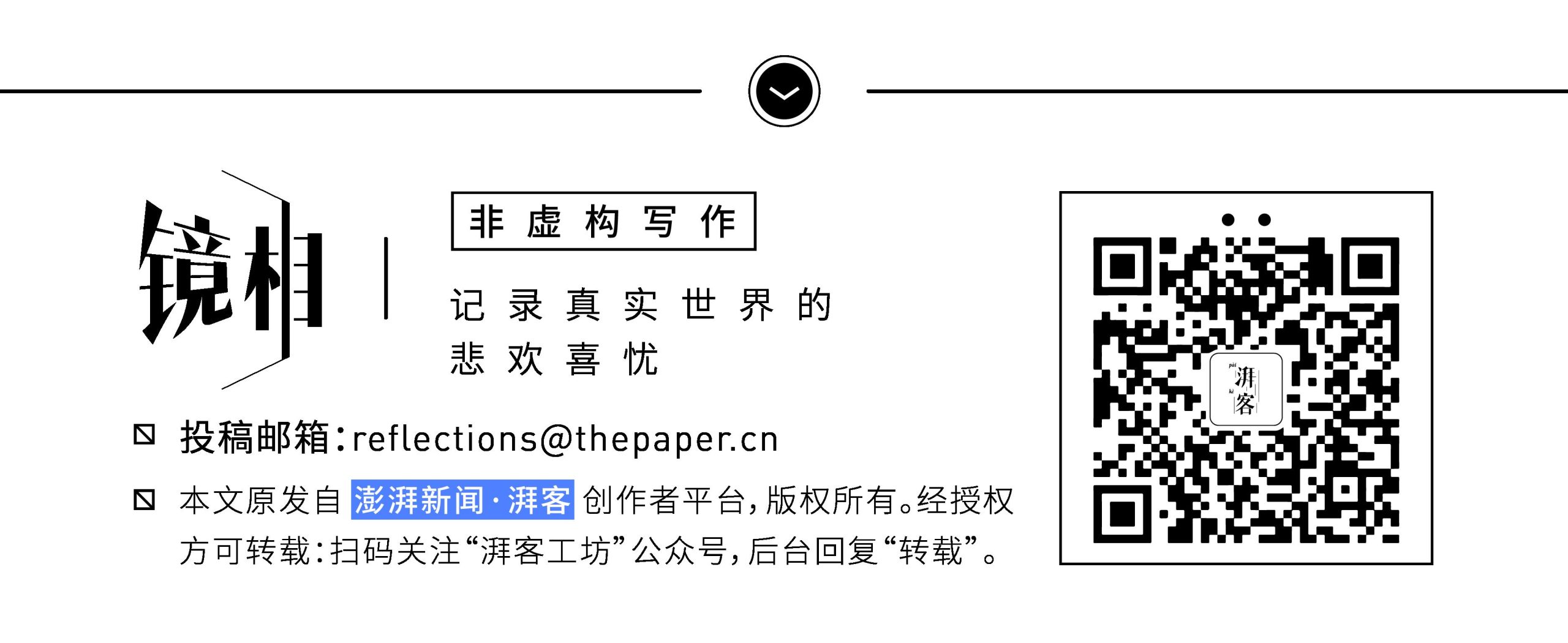One person dies every 17 minutes in new york, and my Chinese restaurant still dares not close down.
The mirror column is the first exclusive non-fiction work. If you need to reprint it, please contact the backstage of WeChat in Paike Workshop.
Text | Pang Yuhong
Edit | Wang Di
For Lin Li, a Shanghai woman who runs a Chinese restaurant in new york, her "cold winter" began as early as the day when Wuhan was closed, and there is no sign of "thawing" until the summer.
In May last year, Lin Li and her church friends set up a stall in the food city in Queens, new york, mainly engaged in special stir-frying. The wall was full of pictures of 50 special dishes, from the crab powder cage in Shanghai to the diced chicken in chili pepper, boiled fish and yellow croaker noodle soup with Guangdong characteristics. Five workers are employed in the store, who are responsible for cashing, preparing meals and packing, and each has its own division of labor.
The food city is located in Amherst, in the west of Queens, a community famous for immigrants from all over the world, especially from Asia. This food stall, which was converted from a supermarket, accommodated 26 merchants. The scarlet letter signboard and the red and white flags hung on the eaves of the wall were striking. From cold rice noodles to Xinjiang cuisine, from fried rice noodles to mala Tang, I suddenly had the illusion of returning to China. Lin Li’s shop is located in the corner of the food city.
When Lin Li returned to the store after her 10-day Spring Festival holiday in China, the noisy voices in the past had disappeared and were replaced by the sighs of the empty hall and other stall owners. Rumors and discrimination have begun to permeate the lives of ordinary people. Many people regard Chinese food and Chinese people as carriers or sources of infection, and avoid eating in Chinese restaurants.

The empty streets in new york The pictures in this article are all taken by Pang Yuhong.
"As far as I’m concerned, restaurants are more hygienic than other restaurants, because we have been reading domestic information all morning, and we all know the seriousness of this problem, so we may be much more cautious than those foreigners." Lin Li said. For safety reasons, Lin Li also asked employees to wear masks and gloves. As the number of guests in the dining hall decreased greatly, she was worried about the wages of the workers every day. "Later, we finally got the wages for the workers, but we had no money to earn, and we still owed a lot of rent, water, electricity and gas, and we couldn’t pay them at all."

New york citizens wearing masks one after another.
China, the oldest city in Manhattan, is usually crowded with pedestrians, tourists and vendors selling fruits and vegetables, but it suddenly became an empty city in February, and even the amount of garbage collected in the garbage bins within its jurisdiction has dropped every day. Grace Young, a food writer, has lived in China for more than 40 years, and she knows a lot about restaurants in China. On a weekend at the end of February, she found that the Xixi Roast Meat Restaurant, which she often went to, was closed because of poor business, so she began to actively appeal to everyone on social media and radio to support the business of these Chinese restaurants.
Both the small restaurants in China and the food city where Lin Li is located have a common feature, which is cheap and good. You can buy a bag of fruit from a street vendor for two or three dollars, a bowl of wonton for 6.5 dollars, and a bowl of rice with Sichuan style stew pork for 9 dollars in Lin Li’s shop, which is far lower than most supermarkets and restaurants in new york.
"Many Chinese restaurants are small businesses, and their net interest rate is very low. They all rely on the sales volume to make profits. How much profit can you leave after a bowl of wonton is stripped of labor, raw materials, water and electricity, rent, tax and insurance?" Grace looked at the Chinese restaurant that was empty at rush hour and said to me with great regret.
As the discrimination against Asians continues to ferment, some violent incidents have also started to appear in the news frequently. Grace began to worry about her own safety after seeing reports that Asians were inexplicably attacked on the street and abused on the subway for wearing masks for several days. "I know that many of my friends have such unpleasant experiences. Our society is too crazy now." Speaking of this topic, she suddenly became nervous, then paused and muttered in a low voice: "I even think it is scary to talk about this topic. Who knows what will happen."
Lin Li’s son, who is going to college in other places, also specially called her to ask about her safety. Unlike Grace, who has scruples, Lin Li is more outspoken. "I think Americans are too arrogant. Especially after Trump took office, he made this racial discrimination clear and made it public, and then some Americans’ hatred was aroused."
When the timeline advanced to March, the United States became the "epicenter" of the epidemic. Compared with the concern about discrimination, the survival of restaurants has become a more urgent issue. On March 16th, the Governor of New York, Andrew Cuomo, ordered all restaurants to close their in-house dining business, allowing only takeout and self-help meals. In the next week, Lin Li watched the Vietnamese rice noodles, Japanese food, cold rice noodles, saute spicy chicken, mala Tang and other stores in the food city close one by one. By the 23rd, only her restaurant in the huge food city was still open.
"Do you remember the end of Titanic? I watched our lights go out one by one, and I remembered the scene at the end of the movie, when four musicians played "Closer to My Lord" on the boat, and then people rushed to jump into the boat and escape. This felt very strange. " Lin Li said on the phone.
All the workers she used to hire took time off to go home for fear of the epidemic. As a result, all the tasks of maintaining the operation of the restaurant fell on Lin Li and her partners. In order to protect their own safety, she and her partner will lock the door from the inside every day after they arrive at the store, and put up notices on the gate asking the takeaway riders to wait outside.
Go out at 8 o’clock every morning, and when you arrive at the store, you just prepare the goods, prepare the take-away list, stir-fry and pack, and you can’t eat your first meal until 4: 30 in the afternoon. Lin Li vividly called this process "handing in homework".
In late March, thousands of supermarkets in new york City were temporarily closed due to logistics obstruction and manpower shortage, including three supermarkets near the food city. The wholesaler of vegetables and meat that used to deliver goods to the door disappeared, and the supermarket that often went shopping closed, which made Lin Li’s daily meal preparation process become a "treasure hunt" for driving to find supermarket supplies. "I used to shop around, but now as long as I can find a supermarket to open the door, I will go in and give the list to the boss, take the goods and leave, and I won’t compare prices at all." Lin Li said.
The difficulty in stocking has brought about changes in the dishes. There were 20 products on the take-away menu, but now it has been reduced by nearly half. One day, I received two orders for pickled bullfrogs, both of which made Lin Li feel embarrassed. When she went to the market to stock up the night before, she only bought a live bullfrog. Seeing that the time was too late, she could only contact the second customer who placed the order to cancel the order.
Not only are the raw materials difficult to find, but even the packing box has once become a problem. It turned out that the Aolong Catering Wholesale Market, where Lin Li often went, announced the suspension of business at the end of March, so she had to temporarily replace the lunch box. I didn’t expect to receive a complaint from a guest just two days after I changed the lunch box. A frequent visitor in the store asked why the amount of food suddenly decreased in the WeChat group. Lin Li sincerely apologized in the group in time and explained to the customer that it might be the visual difference caused by the change of the shape of the lunch box.
"Before, if you were missing something, you could borrow it from the restaurant next door, but now it’s gone, and if you are missing something, you will be told by the guests." Lin Li sighed. At this time, she received a WeChat prompt, showing that the number of WeChat steps on that day was 19,000, ranking first in the circle of friends.
While Chinese restaurants are struggling to find the source of goods, the sharp increase in the demand for take-away delivery has also prompted Lang Tao, who specializes in take-away business in new york and New Jersey, to change his strategy urgently. In 2014, he and his partners established a platform dedicated to the distribution of Chinese group meals-Yunban Newspaper, which regularly transports authentic Chinese food distributed in Flushing, Brooklyn and other places to the business districts and schools in Manhattan. Every day at noon and evening, it is often seen that white-collar workers and students queue up to take meals at their mobile distribution points.
In the face of the menacing Covid-19, the number of 100 merchants stationed in Yunban Newspaper has dropped sharply to 20, and Lin Li’s restaurant is one of the few merchants. Because most companies take home office and students take classes online at home, the original shopping route centered on the business district of Yunban newspaper can no longer meet the needs of users. Lang Tao discussed with the team urgently, and began to plan to deliver meals to some residential areas with dense Chinese, and adjusted the menu on the platform to cancel cold dishes and only heat dishes.
"Eating is just a need, so the average unit price of our orders has doubled during this period of time. But now, after all, the transportation capacity is limited. We may need to deliver hundreds of orders for dinner every day, which is already running at full capacity. " Wolf Tao said.
The delivery staff of Yunban newspaper goes to the merchant’s shop in Flushing every afternoon to pick up meals-they have a new dress code: protective clothing, gloves and masks, all of which are indispensable. Lin Li always secretly hopes that the delivery staff will come slowly. She usually deals with loose orders from Grubhub, Seamless, Uber Eats and other platforms at noon, and prepares dozens of group meals from Yunban newspaper in the afternoon. She and her partner are busy in the empty food city, fearing that they will not be able to prepare meals before the delivery staff arrives.

Heavily armed delivery staff
After entering April, the turning point of the epidemic in new york was delayed, but Zhang Wen, who was resting at home, couldn’t hold back and decided to return to work quietly.
Zhang Wen has been running Aolong Restaurant Wholesale Company in Flushing, new york for four or five years, with clients covering hundreds of Chinese restaurants in new york, Chicago, Maryland and New Jersey. After the outbreak began, the first thing he felt was that drivers were too difficult to hire, and sometimes he had to drive himself to farms and dealers to pull goods. After some supermarkets were closed, residents who wanted to stock up poured into the wholesale market to purchase. Zhang Wen looked at the sudden emergence of a large number of individual customers in the warehouse. First, he shortened the business hours and canceled the delivery service on March 23, and finally decided to temporarily close down at the end of March. At this time, 80% of the restaurants he had worked with had closed down.
"We were also very flustered at the time. After all, we were doing wholesale business. Suddenly, we saw so many families coming to shop, people came and went, and employees felt unsafe." Zhang Wen recalled, "In fact, the food reserves in the United States were abundant, but everyone rushed to buy them. As a result, the prices of ginger, garlic, spices and vegetables also rose."
A rare week of rest at home is not very enjoyable for Zhang Wen, who can’t help himself. "Every day, except playing with children, I just eat and sleep. After staying for a week, I feel that life is boring." During the rest at home, some old customers still call him to buy goods. In order to prevent a large number of passengers from entering the wholesale market again, Zhang Wen did not open to the outside world this time, but quietly opened the wholesale market to serve old customers.
The two-month stay-at-home order not only brought challenges to Chinese restaurant owners like Lin Li, but also gave birth to many fresh delivery platforms dedicated to serving Chinese people, distributing all kinds of meat, fruits and snacks sold by Chinese supermarkets to customers’ homes far away from Super League. This is an unexpected turn for Zhang Wen. "It turned out that the goods sold in Wechat business that we contacted were relatively simple, but now Wechat business, which comes to us to get the goods, has more diverse needs for fresh food, spices, fruits, rice noodles and snacks." Wechat business’s joining has brought new customers to Zhang Wen, and also made him pay attention to the development of online shopping sales model.
In the third week of April, Zhang Wen’s circle of friends, which had been silent for a long time, posted several photos of high-piled wholesale boxes. He wrote, "Chicken feet, South American golden wings, fat beef, ribs and pork have arrived … There are not many goods, so come and get them as soon as possible." A few days later, Mr. Zhang told me that some Chinese restaurants began to open their doors for take-out, and his wholesale market would resume normal business.
Almost at the same time, the number of confirmed cases of COVID-19 in the United States exceeded one million, and the number of infected people in new york still ranked first in the United States. Queens is the most densely populated area in COVID-19, new york, and Amherst Hospital, which was full of patients at the beginning of the epidemic, is only 5 minutes’ walk from the food city.
The handyman in the shop forwarded an article to Lin Li with the title "Look at crying, new york dies every 17 minutes, and the body is overloaded". In the face of such a situation, Lin Li is also scared. "When I buy goods every day, I see everyone lining up outside the supermarket. When I enter the supermarket, it is all the smell of disinfectant. Sometimes I feel flustered, I am afraid that I can’t get the goods and I can’t eat on time. "
"He just wanted to hint that I should go out of business quickly, but I know there are still many people who need to buy rice at this time. If you go out of business and watch the rising figures panic at home every day, it is better to be busy. " Now, she puts a gospel leaflet in every meal. She thinks that at this time, people may need some light and spiritual support. And herself, at the end of the day’s work, looking at the order quantity displayed on the mobile phone, can only sigh happily and anxiously, "I have to work hard to hand in my homework tomorrow."
(At the request of the interviewee, "Lin Li" in the text is a pseudonym. )
